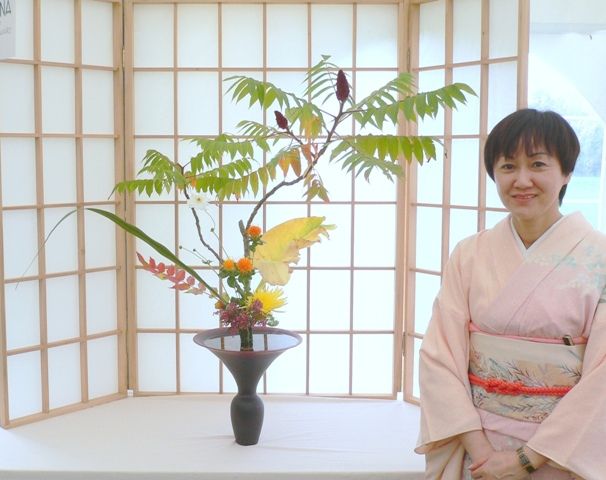
Valentine’s Day is fast approaching and I cannot help but be reminded of beautiful flowers during this time. Not all of us are fond of flowers, but personally, seeing them in the garden, living room, and bedroom always gives me that calming effect. Not only are they nice to look at, but more importantly, they are an essential part of nature – feeding birds, insects, animals, and humans. Furthermore, they help in a plant’s reproduction by attracting outside pollinators and supply natural medicines. They have become such a deep-rooted part of our daily lives and a fundamental part of our landscape.
Admittedly, I know very little about flowers, much less arranging them. I know the names of the popular and common ones but I am quite ignorant when it comes to flower arrangement. I see florists preparing them and it looks easy but since I am no expert, it probably is not and takes a lot of skill. I am interested though in Ikebana or the Japanese art of formal flower arrangement, also known as kado or the “way of flowers”. I see pictures and notice how delicate and exquisite these arrangements look. It emphasizes form, balance, and harmony. Although it is a creative expression, there are rules determining its form and the meaning of each arrangement are seen through the color combinations, graceful lines, and natural shapes.
The book Japanese Ikebana For Every Season by Rie Imai and Yuji Ueno gives us more information about Ikebana and makes it more accessible to everyone. A lot of us may think that it is hard but this book makes it all look so uncomplicated. It presents 53 simple yet elegant flower arrangements that even someone who has not done any arranging can do anytime, anywhere. The flowers are arranged in simple containers to adorn your surroundings or to be given away as gifts for special occasions like Mother’s Day, birthdays, and wedding anniversaries.
This book presents and explains in detail some simple principles such as the idea of seeing old things with new eyes and also offers a few very easy methods of flower stabilization and how to support flowers and plants inside a vase or any container. Using any kind of flower, you can make beautiful Ikebana in just a short time. Choosing the flowers and the containers that you can see around you and showing how to turn them into special arrangements are carefully and thoroughly explained. Furthermore, the book presents many styles that make the reader use his creativity rather than imitate traditional and highly technical Ikebana design concepts. Probably the best thing about having this book is knowing that all these elegant Japanese flower arrangements do not have to cost so much.